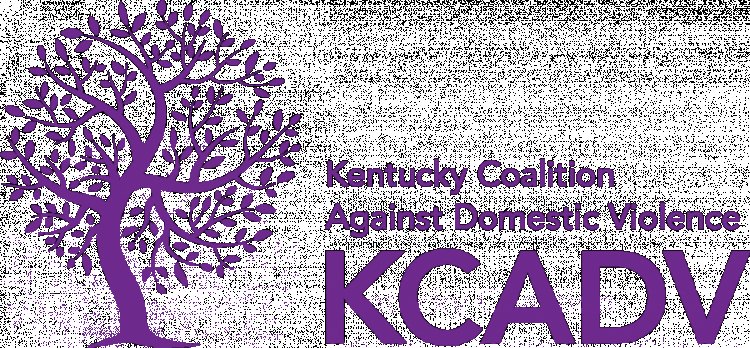Kentucky Coalition Against Domestic Violence (KCADV) Announces October Domestic Violence Awareness Month

FRANKFORT, KY, USA: The Kentucky Coalition Against Domestic Violence (KCADV) and its member programs--a network of 15 organizations providing shelter and services for DV survivors throughout the Commonwealth--announce October as Domestic Violence Awareness Month.
KCADV will join Governor Beshear at the Capitol in Frankfort on Oct. 18 at 11 a.m. for a press conference proclaiming October as Domestic Violence Awareness in Kentucky, as well as marking the commemoration of KCADV’s 40th anniversary and the 25th anniversary of VINE.
At 2:30 p.m. that afternoon, KCADV will host Toward a Violence-Free Kentucky: KCADV 40th Anniversary Virtual Panel Discussion. A select panel of professional leaders who serve survivors of domestic violence will discuss the past, present, and future of our collective work toward building a Commonwealth free of violence and abuse. Free and open to the public via Zoom, the virtual panel discussion will open with a video memorial of victims who were murdered by an intimate partner in the last year.
“Our 40th anniversary is the perfect time for us to reflect back on how we first approached advocacy services for survivors of domestic violence and how far we have come,” says Angela Yannelli, CEO of KCADV.
“Providing emergency shelter and crisis intervention is still critical, but we also need to put resources and efforts into primary prevention to stop the violence before it first happens,” says Yannelli. “Kentucky must recognize domestic violence as a public health issue that affects all of its citizens,”
In addition to KCADV’s statewide efforts to promote domestic violence awareness, local shelter programs throughout the state will also host their own activities, such as candlelight vigils, designated days to wear purple, and other virtual and in-person community awareness events. Check with the shelter program in your local area for details about local activities (map attached).
About KCADV’s 40th Anniversary:
The national movement to provide domestic violence shelters and services was less than ten years old when KCADV was founded in 1981.
The first shelter in the nation opened in Michigan in 1973; the first shelter in Kentucky opened in 1977 at the Louisville YWCA, with five more Kentucky shelters opening in the next four years. In 1980, Governor John Y. Brown publicly endorsed funding a statewide network of domestic violence shelters.
Formerly named KDVA (Kentucky Domestic Violence Association), KCADV was created to unify advocacy, funding, and training support for the state’s six domestic violence shelter programs that existed at the time.
By 1985, Kentucky had added nine more shelters, reaching its goal of providing shelter programs in each of the state’s 15 Area Development Districts, ensuring domestic violence services to residents in all 120 Kentucky counties.
In its first two decades, KCADV and its member programs provided historic advocacy and leadership in the development and implementation of foundational domestic violence legislation and best practices at the state and national level.
For example, in 1987, KCADV supported the passage of legislation that added unmarried couples who shared a child and former spouses to the list of persons eligible for protective orders (previously protective orders had only been only granted for abused spouses).
And in 1990, after several years of setbacks, KCADV celebrated the long-overdue passage of legislation that made marital rape a felony.
Throughout the1990s, KCADV worked to implement the federal requirements of the newly passed Violence Against Women Act, with Attorney General Janet Reno citing Kentucky as a “model laboratory” for the act’s “full faith and credit” requirement, which ensured that protective orders were enforced across state and tribal jurisdictions.
KCADV also created and implemented statewide victim service standards as well as training and certification programs to ensure victims/survivors throughout the state had access to trained professionals and regulated standards of care.
In the last two decades, KCADV has continued to grow and refine its advocacy, support, training, research, and thought leadership on behalf of survivors of violence and abuse in Kentucky.
“We cannot end domestic violence alone,” says KCADV CEO Angela Yannelli of the lesson’s learned over the past four decades as well as the work that lies ahead.
“To make real change, it requires all of us coming together as a collective, working toward wholeness – working towards a violence-free Kentucky,” says Yannelli. “That work involves untangling, dismantling, and rebuilding systems that perpetuate barriers such as poverty, racism, and cultural stigmas which trap survivors in cycles of abuse.”















































